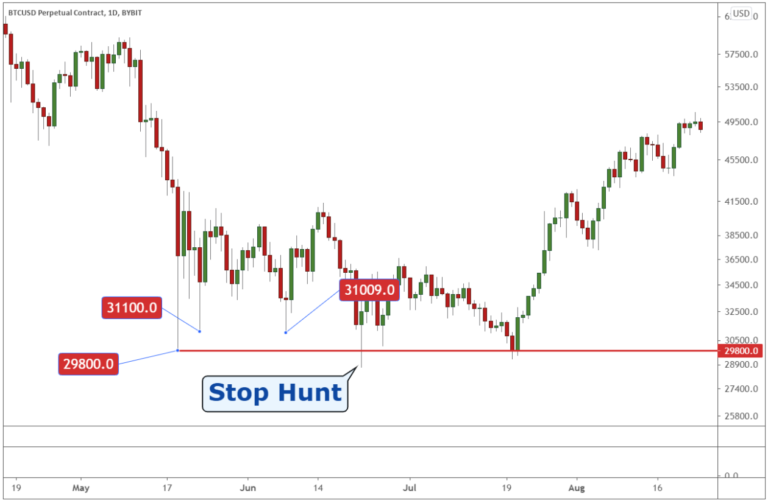Proprietary trading, also known as prop trading, is a prominent investment strategy employed by institutions to engage in financial markets. Proprietary trading firms utilize their own capital for market investments, distinct from managing clients’ assets. The most esteemed prop trading firms have been gaining significant attention in the retail trading sector, offering skilled traders the chance to operate with substantial funds.
This article introduces the leading proprietary trading firms, starting with an explanation of the concept of prop firms and how they operate. It then offers guidance on how to become a prop trader, followed by an evaluation of important factors to consider when choosing the right firm for collaboration. The article concludes by showcasing the top prop trading firms of 2023.
Having explored the best prop trading firms and their respective offerings, let’s now shift our focus to a related topic that’s gaining attention in the financial trading community: the legality of copy trading in India and its implications for traders in this emerging market.
Understanding Proprietary Trading Firms: An Overview
A proprietary trading firm, often referred to as a prop firm, is a type of financial institution that primarily invests its own capital in various market ventures. This article delves into the specific category of prop firms that not only engage in self-funded trading activities but also provide opportunities for adept traders to handle the firm’s capital. In doing so, these traders can share in the profits generated. Our focus in this discussion is to offer insights and guidance for those traders who are considering a career in proprietary trading, helping them to identify the most suitable firm that aligns with their professional objectives.
The Operational Mechanics of Proprietary Trading Firms
The financial model of prop firms involves sourcing capital either from their internal shareholders or through borrowing from external financial bodies. This capital is then allocated to proficient traders through trading accounts, which are typically registered with partner brokerage firms. These traders are entrusted with the responsibility of managing and trading the firm’s capital in various financial instruments with the goal of generating profits.
These profits are subsequently divided between the trader and the firm, usually on a monthly basis. However, it is important for prospective traders to understand that prop firms often implement a series of challenges or tests to identify and select the most capable traders. These challenges usually take the form of simulated (demo) trading exercises, which have set criteria such as specific profit targets, maximum allowable drawdown, and time constraints.
Strategies for Taming Market Volatility
Proprietary trading firms, known as prop firms, employ a variety of risk management strategies to mitigate risks and safeguard their operations against the uncertainties of market volatility. A prominent example of such a strategy is the implementation of drawdown limits for funded traders. This restriction prevents traders from incurring losses beyond a specified threshold. Exceeding this limit can result in the trader’s account being revoked. Furthermore, these firms often diversify their revenue streams to enhance financial stability.
Interestingly, the primary income for many prop firms isn’t necessarily derived from the trading profits of their traders. Instead, it often comes from the fees charged for participating in their trading challenges. These fees are collected upfront from traders, whether they eventually succeed or fail in the challenge. This approach to revenue generation provides a stable income source that remains largely unaffected by market fluctuations.
Want to Be a Prop Trader? Here’s How to Get Started
Proprietary trading firms offer a significant opportunity for traders to manage substantial funds, with their primary risk being the cost of entry into these trading challenges. To seize this potentially transformative opportunity, aspiring traders must first acquire and refine their trading skills to reach a professional level.
Being a professional trader in this context implies having the ability to effectively manage risks and consistently generate profits from market activities. Additionally, it’s crucial for traders to adapt to the specific rules and requirements of their chosen firm. This adaptation includes understanding and adhering to set guidelines such as maximum drawdown limits, minimum active trading days, and other pertinent criteria.
The availability of numerous reputable prop firms presents traders with a solution to one of the most common challenges in trading: a lack of capital. To leverage this opportunity, traders need to focus on mastering the essential skills that make one a consistently successful trader and an adept risk manager.
Triumph Stories: How Traders Excelled with Prop Firms
In this segment, our focus is to succinctly share narratives of traders who achieved remarkable success through the use of prop firms. These individuals have openly discussed their journeys on various social media channels and podcasts, allowing us to relay their experiences in their own words. We’ve chosen to use their social media handles instead of full names for this compilation.
- Paladin’s Journey: At just 21, Paladin attributes his trading success to prop firms. Juggling college and a part-time doorman job to fund his trading ambitions and afford prop firm challenges, Paladin’s dedication has paid off. He now earns a five-figure monthly income, a testament to the opportunities provided by prop firms and his own hard work and talent;
- Rafael’s Story – Kimmel Trading: Hailing from Portugal, Rafael represents another success story in the prop firm landscape. In his 20s and with only 3 years of trading experience, Rafael manages assets worth 7 figures, backed by several prop firms. He views prop firms as an effective accelerator for traders to achieve their financial aspirations, provided they maintain discipline;
- Hannah Forex – Breaking Barriers: As one of the few renowned women in trading, Hannah’s story is one of determination and success facilitated by prop firms. With access to multiple six-figure trading accounts, her resolve has enabled her to live independently and support her family.
Key Considerations in Selecting a Prop Trading Firm

The retail trading industry is bustling with numerous prop firms, and choosing the right one is crucial. Here are vital factors to consider:
| Aspect | Description |
|---|---|
| Reputation | Assess prop firms by exploring reviews on trading forums, websites, and social media. Pay attention to both strengths and red flags. |
| Regulation | Prioritize prop firms with stringent regulations, particularly those regulated in the US and EU, for reliability and security. |
| Pricing Structure | Examine the cost of challenges offered by different prop firms, aiming for the most reasonable pricing. |
| Criteria for Success and Failure | Evaluate each firm’s profit targets, drawdown limits, minimum trading days, and time constraints to find your best fit. |
| Payout and Profit Sharing | Investigate the profit split ratios and payout frequency offered to funded traders by each firm. |
| Partner Brokers | Analyze the spreads, commissions, slippage, and trading platforms of the brokers partnered with each prop firm. |
The Leading Proprietary Trading Firms
In the preceding sections, we’ve delved into the intricacies of proprietary trading firms, their operational mechanisms, and the crucial factors to bear in mind when selecting the ideal company for your needs. Now, we present a comprehensive overview of the top proprietary trading firms in 2023, examining their standardized challenges and other fundamental criteria, followed by individual in-depth analyses of each firm.
FTMO
FTMO is a leading name in the proprietary trading firm industry, widely recognized for popularizing prop trading among retail traders. They provide two primary challenge types: normal and aggressive risks. The key distinction is that aggressive accounts permit twice the drawdown of normal accounts, but also double the profit targets for both challenge and verification stages.
Advantages of FTMO include:
- Being the most reputable prop firm globally;
- Superior trading journal and performance-tracking applications;
- Opportunity to scale up to $2 million in funding;
- One of the finest profit-sharing policies in the sector;
- Availability of a free trial.
However, FTMO has some drawbacks:
- Absence of a one-step challenge;
- High profit targets.
My Forex Funds
My Forex Funds, a significant competitor of FTMO, has gained traction in recent years. They offer traders more flexibility, with simpler profit and loss requirements and various challenge types. Beyond their standard, two-phased evaluation challenge, they also have rapid and accelerated challenges. Rapid accounts have no profit targets, offering a smaller profit share as traders earn and learn. Accelerated accounts are designed for those seeking immediate funding with better profit splits than rapid accounts.
Pros of My Forex Funds:
- Regular payouts, either weekly or bi-weekly;
- Availability of high leverage;
- Competitive pricing;
- Free retry opportunity if rules are not breached.
Cons include:
- High slippage rates;
- Inadequate customer support;
- No option for a free trial.
The Funded Trader
The Funded Trader, though newer than FTMO and My Forex Funds, has rapidly caught up. This firm offers global traders funding opportunities with four challenge types: Standard, Rapid, Royal, and Knight. The Rapid challenge has no minimum trading day requirement but lower profit targets and drawdown limits. The Royal challenge is akin to the Standard but permits the use of Expert Advisors, while the Knight challenge is similar to the Royal but with only one phase.
Advantages of The Funded Trader:
- Simplified rules and requirements;
- Swift payout processes;
- A diverse range of challenges;
- Exceptional customer support.
However, it has certain limitations:
- Shorter track record compared to rivals;
- Higher commissions and spreads on some trading instruments;
- No availability of a free trial.
My Funded FX
My Funded FX, a relatively new contender in the proprietary trading firm landscape, has been diligently climbing the ranks. They offer two challenge types: a standard two-step challenge and a one-step challenge. The one-step challenge demands reaching the same profit target as the first phase of the two-step challenge but imposes a stricter drawdown limit.
Advantages of My Funded FX include:
- Allowing weekend cryptocurrency trading;
- A large and active Discord community;
- Frequent promotions and coupon code offers;
- Superior customer support via Discord.
However, there are some drawbacks:
- Being a new entity in the industry with a limited track record;
- Lack of a free trial option.

True Forex Funds
True Forex Funds (TFF) is another burgeoning prop firm that’s swiftly becoming a favorite among novice and seasoned traders alike, thanks to its simplified rules and requirements. TFF offers the flexibility of opening accounts in U.S. Dollars, Euros, or British Pounds.
Pros of True Forex Funds:
- Competitive tight spreads;
- Permission for trading during news events;
- Free retry opportunity provided the rules are adhered to.
Cons include:
- Relative inexperience in the industry;
- No free trial option.
The integrity of prop firms has been questioned recently, with allegations resembling those of a Ponzi scheme. Many prop firms assert their earnings stem from profit-sharing with successful traders, aiming to foster a conducive environment for their clients. However, some rely heavily on revenue from challenge fees.
My Forex Funds, a major player in the prop firm industry, has faced accusations of using software to undermine their funded traders, leading them to lose their accounts. The CFTC has even stated that most funded traders are operating in a simulated environment rather than in actual market conditions.
Consequently, My Forex Funds appears to have engaged in deceptive practices. They claim their success is intertwined with their traders, yet seem to have been maneuvering to cause trader losses. This business model, heavily reliant on challenge fee revenues and using these funds to pay out the few profitable traders, bears resemblance to the workings of a Ponzi scheme, where profits are distributed from the investments of new participants.
Conclusion
This article begins by explaining the nature and operation of proprietary trading firms, along with a guide on securing funding from these firms. The main focus, however, is on detailing the essential factors and criteria to consider when selecting a prop firm to collaborate with, culminating in the introduction of the top prop trading firms of 2023.
The current top five prop firms are analyzed, comparing their pricing, rules, and features. Each firm is evaluated individually, outlining their strengths and weaknesses. Notably, FTMO is highlighted as the leading and most dependable prop firm globally, credited with the most impressive track record. The prop trading industry is noted for its rapid growth, with an influx of new competitors, providing traders with a wider range of options.
FAQ
Selecting the top prop trading firm is subjective and varies with each trader’s needs and preferences, although FTMO often stands out as a frontrunner in the industry.
Engaging in proprietary trading comes with its set of risks, encompassing both financial and legal aspects, much like other forms of trading.
When choosing a prop trading firm, factors to consider include the required number of trading days, limits on drawdown, profit objectives, and any applicable time restrictions, to ensure it matches your trading requirements.
The income of a prop trader is not fixed and can significantly vary, depending on their trading skills, the strategy employed, and the scale of their trading account.
Proprietary trading with most firms today is largely remote, facilitated by the advancements in the internet and technology. The key necessities are simply an electronic device and internet connectivity.











